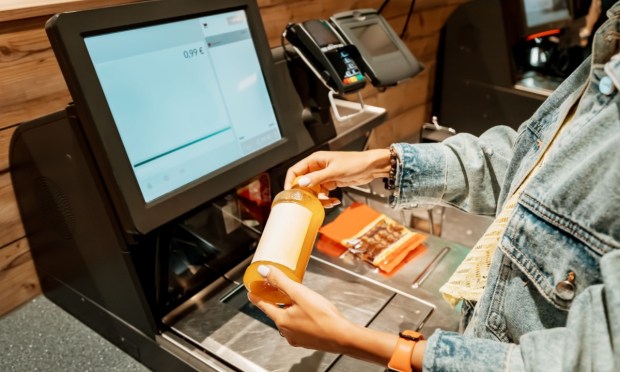
Lawmakers in California want to put some checks on the use of self-checkout.
As a recent Wall Street Journal editorial noted, the state’s Senate has just passed a bill that would limit self-checkouts at supermarkets and drugstores.
The legislation would change the current system — in which some stores have one worker manning several kiosks — and would require one employee who is “relieved of all other duties” to be in charge of no more than two self-service stations.
Stores would also be required to limit self-checkout to purchases of 15 or fewer items with, and would have to carry out a “worker and customer impact assessment” before using robotics, sensors, artificial intelligence (AI), or electronic monitoring.
Finally, stores would have to study access barriers for “certain populations of consumers,” including “seniors, the disabled, the unbanked, those without access to appropriate technology, youth, or other vulnerable populations.”
Some retailers are already scaling back self-checkout. For example, Walmart earlier this year said it was limiting the option to subscribers or making it a store-by-store decision.
“During these times of limited access, some stores are designating select self-checkout stations for Walmart+ customers using our Scan and Go service and Spark drivers for quicker access and delivery services,” a Walmart spokesperson told PYMNTS at the time. “This decision is intended to better manage checkout availability.”
These technologies are not only designed to cut down on merchants’ labor costs — they also address a consumer demand. Research from PYMNTS’ “Digital-First Banking Tracker® Series Report” showed that 84% of American consumers said they enjoy using self-service kiosks, while two-thirds of consumers said they would rather use self-service models than staffed checkout lanes.
In addition, PYMNTS Intelligence’s “Big Retail’s Innovation Mandate: Convenience and Personalization” found that 60% of U.S. retailers believed their shoppers would be very or extremely likely to switch merchants if not given the choice of self-service kiosks.
Self-service is taking off in other industries as well, such as the restaurant sector, where Bite, a digital ordering kiosk provider serving fast-casual, quick-service restaurants and convenience stores, recently raised $9 million in its Series A funding round, underscoring the strong interest in such solutions for eateries.
“The restaurant industry is facing a very challenging environment, struggling to generate profits in the midst of an unprecedented labor shortage, rising minimum wages and cost inflation,” Bite CEO Brandon Barton said at the time. “Bite’s self-service kiosk software gives restaurants the tools to succeed in this environment, by leveraging our technology for tasks that can be digitized and reallocating labor to higher priority responsibilities.”
For all PYMNTS retail coverage, subscribe to the daily Retail Newsletter.